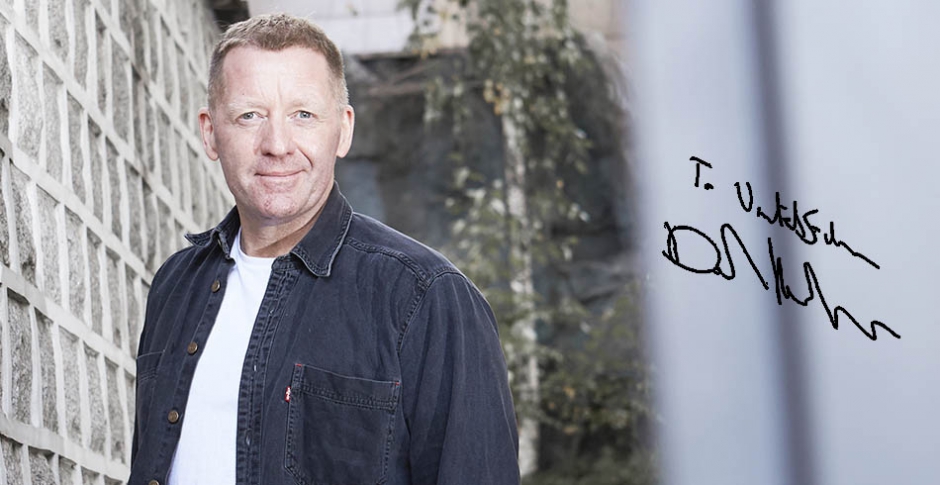David Kinsella - I always have to find some kind of humanity in every film I make
Written by Eva Csölleová, Vítek FormánekThis much awarded Irish photographer -cum -film maker living in Norway was a guest of Zlín Film Festival 2017. His incredible way of filming, shooting in North Korea and stories behind that made our interview jaw draping experience.
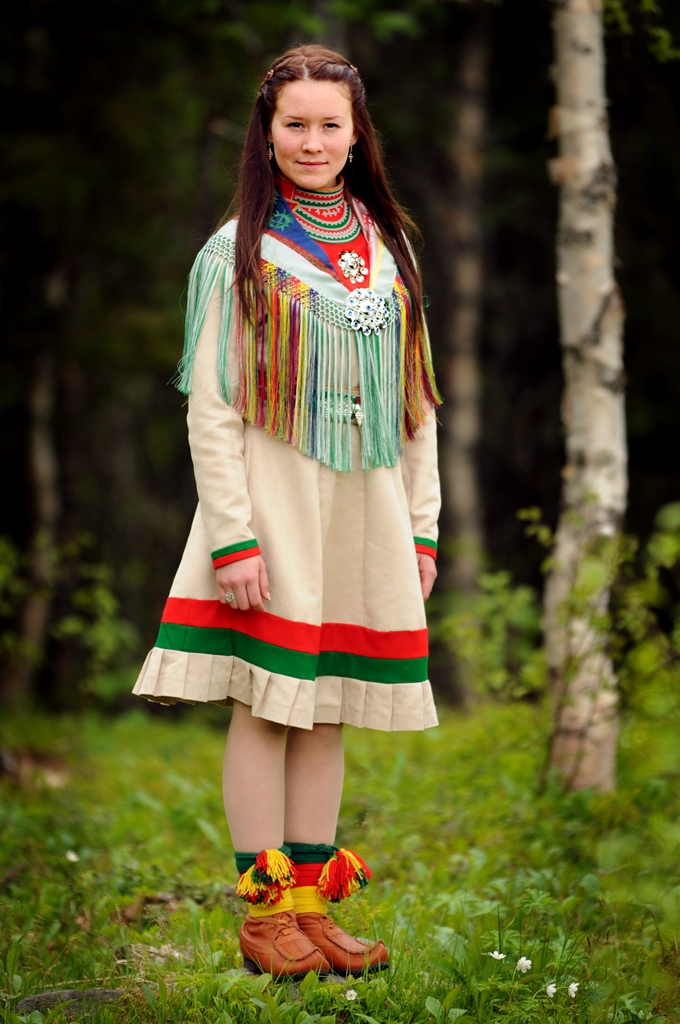
Why did you move from Ireland to Norway?
My ex-wife wanted to go there so we moved in. But looking back, I would never ever have a chance to do so many creative things in Ireland like I do now in Norway. It´s such a great place to work. Look at Norwegian Film Institute. Their job is to develop the form of film, not to keep status quo. So if you come up to them with idea which was never used before, you get about 30% of funding. If you come up with something that was never seen before, you can get up to 85% of funding, which is brilliant. So every time I always break the rule and give the audience something that they never ever seen before. It is great to come always with something new and this way of funding support your creativity and push you forward. I never go for commercial stuff, I always try to be independent and ahead with ideas.
One of the films I made was called Beautiful tragedy. It´s about ballet dancer in Russia, and again I used the animation which is good because it can show a lot in very short space of time.
It was one of the first films I mixed animation with feature film Later on I traveled 60 countries in 3 years with that film. Once I got a call from Los Angeles and they had a premiere of Black Swan with Nathalie Portsman and they said they used my Beautiful tragedy as inspiration. So after that it became a cult ballet film.
You won manyPress of the year photographic awards. Did you realize through lenses that if you can do this, film is the next logical step?
You know the best film directors were great photographers. I always say” Everybody is good at something but not everybody finds what he is good at during his life” When I was at school in Ireland I had problems because I always had the answers but never could write it down. I had little bit of dyslexia. I finished school when I was 16 and got a job in local newspapers as a photographer. I didn´t know anything. Within six months I won Ireland photographer of the year award. And up till today I am still the younger holder of that award. So by pure accident I found out what I am good at. So if you have problems with telling stories by written stories, tell them my pictures.
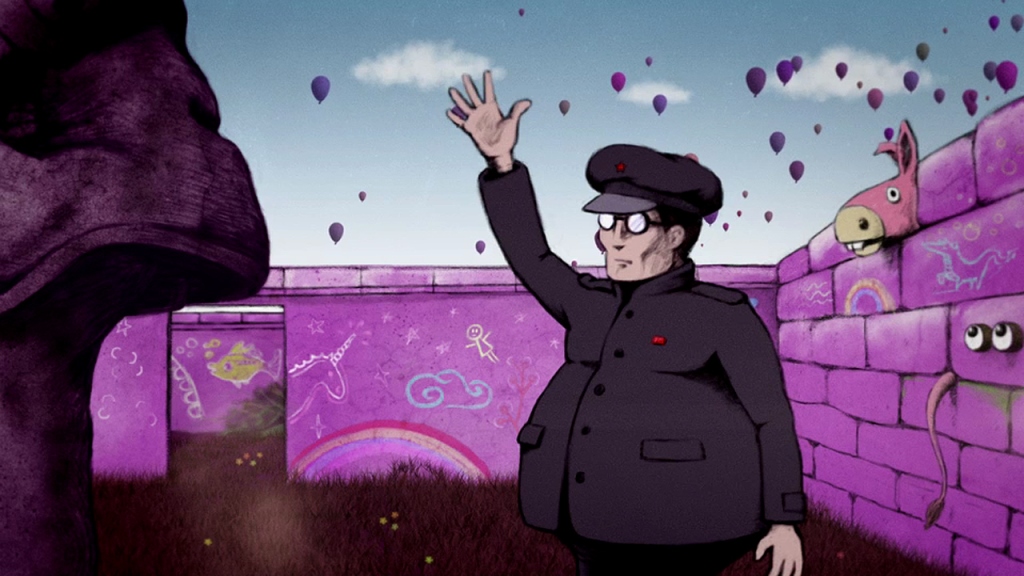
Your first film was called Love letters from children´s prisons. It won many awards world wide. Did you actually study film making or you picked up the knowledge from photographic work and took your chance?
I have no education at anything. After many years of photographing I stopped learning. So I started teaching and made some master classes in Norway and Europe and I was asked to come to St.Petersburg to not only make master classes but stay there and teach photographers how to make better snaps. And while being there, they asked me if there was anything I would like to do. So I asked them if they have children´s prisons. They said YES and took me to boys prison which was like concentration camp from WWII. I took some still and did filming on my video camera. Then I watched what I made, it was about seven minutes and I liked it so decided I could make a film about that. Coming from Ireland I always had to find some humanity in every film I have made. So that´s how I started to make film.
By the way all my main characters were women. Even in this prison the main character was a girlfriend of my boy. In America it was nominated for the documentary of the year and BANG. In film industry you never find finance for the movie until you make international success and I made it with my first film. It is Catch 22 situation. So I had to make this film an international success to get finance for my next film which was called Killing girls. It´s history of abortion, comparing teenagers after Perestrojka, with good girls in Soviet time. It´s eighty minutes black and white and I was waiting two years just for happy ending, since I refused just to make a dark story. I wanted to have positive meaning of life as the end of my movie. Making documents make you a worse person because you have to be honest and have to take all characters of your person.
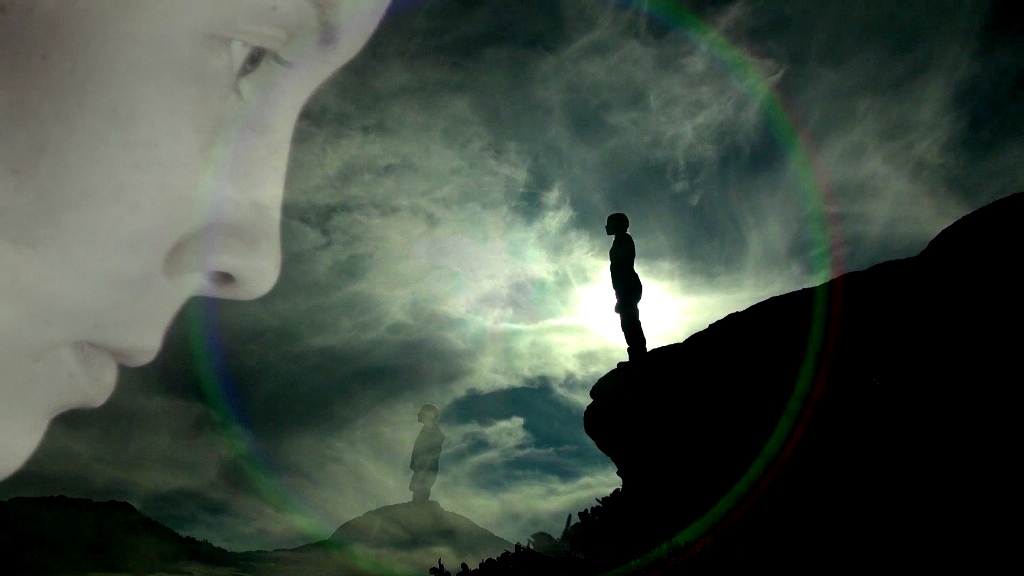
How do you pick up the stories for your films? Are they purely your ideas or someone else´s scripts?
They are all my ideas. They are all from real life. I have international crew and post production crew. I travel a lot around the world and film festivals and meet many talented people. So the film I show in Zlín Whisperers was filmed in Norway, and California, it was written in Amsterdam, edited in Winnipeg, sign design was made in Belgrade and Rome, soundtrack was made in Tel Aviv. It sounds really expensive but it isn´t. In Norway you get lot more for your money that makes film look more expensive.
So generally, how are films funded in Norway?
It´s 90% states funded. When you make art film most film institutes in Scandinavia and around the world are funding art film rather than commercial one. My last film The Wall
had co production from Iceland so I got Icelandic funds. Specialy in Norway there are funds which support art films and don´t expect money back, it´s like an investment. Once you talk to people who want to earn lots of money on film, it has to be commercial, it has to look like something that already had big success. Look at USA and big companies. They are putting 90% of their budget onto one movie and the rest of 10% into ten movies. They assume that one of the art movies they invested those 10% into will be great success. It will mathematically cover the cost of all ten movies.
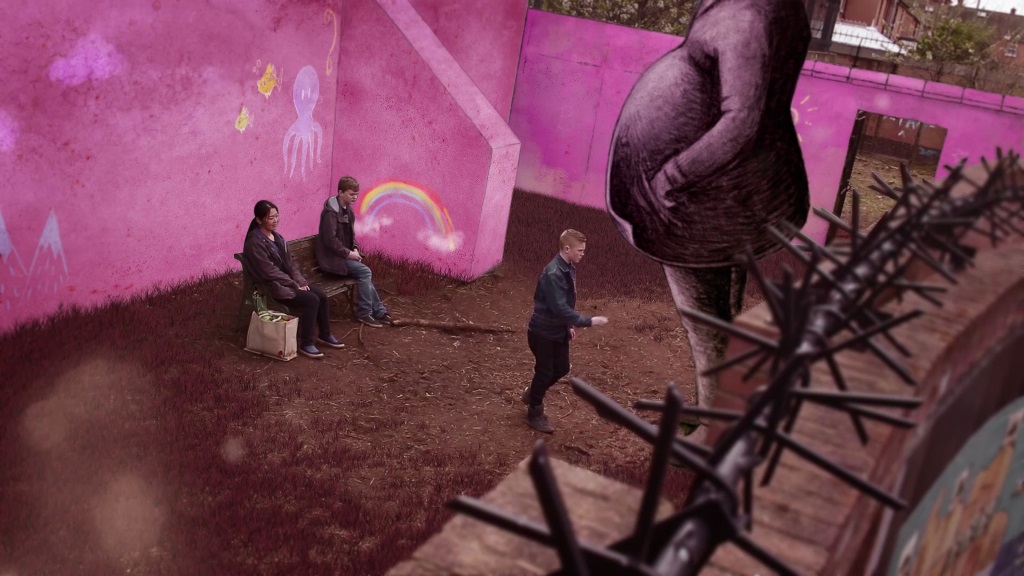 How many people have to come to movie for film would be called great success?
How many people have to come to movie for film would be called great success?
Norway is pretty small, only 4,5 million people, so they make good incentives for film makers. If film is watched by more then 30 000 people, director gets half of his money back.
So film makers try to reach that level to get half of their budget back. About 50% is state funded and the rest goes to co-production. So you can´t start making film, until you have 100% of funding. If you have 95% and two days left into film making and you don´t get those 5%, you loose all your money and have to start that process all over again. I always say, if you want to be a film maker, marry dentist or doctor.You know in Norway they do make feature films that they try to sell to America but problem is a language. All films has to be in English, in that part of the world no one likes subtitles or they don´t dub it.
Does independent film scene exist in Norway and if so how is it supported?
In Norway there are all independent private companies and all fight to get money from Norwegian State Fund. There is no state film company, only TV. Everybody has to apply for funding, there is nobody who would automatically get. Also each region has its own funds too.So if you get 50% from Norwegian State Fund you know, you can get 10-20% from say North of Norway Film Fund.Then you can apply for other funds so you slowly build it up to get 100% funds cover.
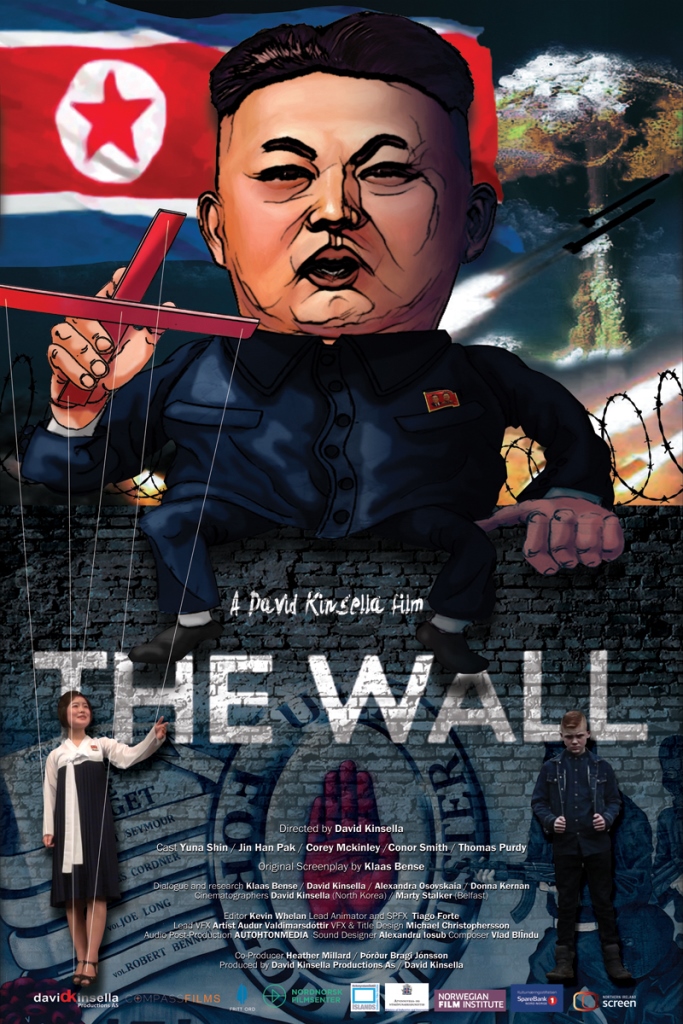 How do you distribute your films?
How do you distribute your films?
I have my Hollywood agent who gets my film Whispers, The Wall and Killing girls on video. Now after Trump arrival into White House and abortion becoming a hot issue again the Killing girls is in big demand,I also have my South Korean distributor.You need bit of finance to be able to relax and be creative. Stress and worries kill creativity, if you know you have money to pay bill, you can be free and creative. Through my website, (davidkinsella.com) over 6 million people watched my movies which means that over 20 000 a month watch them.
If you decide making a film about Barnevert, would you have problems in Norway to get money for that?
Yes, of course you can make a film about them. Barnevert means child security in English and its their job to look after children which are abused or badly treated. Norway is one of the countries where you can do what ever you want so of course and if Film Institute finds it interesting, you would get finance for that.
Your film The Wall was filmed in North Korea. It must have been experience of your life. Was it difficult to get permission to film there and did the authorities see the script before that? Did you have any troubles while filming?
It took two years to make. That year I was the only film maker in the world who got permission to film there. For me it was situation of David and Goliah and my name is David. It was pretty scary in North Korea, I arrived at the airport and they took off my mobile phone so I had no connection with outside world. The guy I went with was deputy of North Korea Friendship Association and he was Norwegian. And I live in Norway so when we came to the hotel, we spoke Norwegian so they couldn´t understand us. There were microphones in the hotel room and cameras behind mirror and there were censorship department, six guys sitting in the hotel checking every file that I have taken every single day. Every day I put the empty beer bottles in front of the mirror where there were cameras so they can see me as an abstract They told me” We never ever had a film maker making the film the way you make it. We don´t think you did anything wrong, but we think there IS something wrong”.
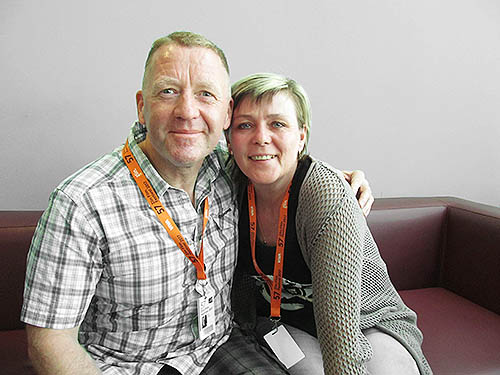 I gave them the opportunity to let me see if I can make a real documentary. After one day they did everything they could to make me doing a propaganda film for them. I was raised in Belfast where there were lots of troubles and for North Korea, all foreigners are the evil who can be used to be abused and you should never trust them. In my film I used similar technology as in the movie called Who framed Rabbit Roger. For example I filmed a girl singing on the stadium for 100 000 people, but stadium was empty so I filmed it and then painted 100 000 people there. I put the people on the strings like puppets and halfway through the film people took notice of that and said “Wow”.
I gave them the opportunity to let me see if I can make a real documentary. After one day they did everything they could to make me doing a propaganda film for them. I was raised in Belfast where there were lots of troubles and for North Korea, all foreigners are the evil who can be used to be abused and you should never trust them. In my film I used similar technology as in the movie called Who framed Rabbit Roger. For example I filmed a girl singing on the stadium for 100 000 people, but stadium was empty so I filmed it and then painted 100 000 people there. I put the people on the strings like puppets and halfway through the film people took notice of that and said “Wow”.
What do you try to achieve by your films?
I try to make my films as a book, which means you plant and pay off. I don´t want to give anybody potato chips and sit in the movie like a plant and be entertained, I want them to think.


